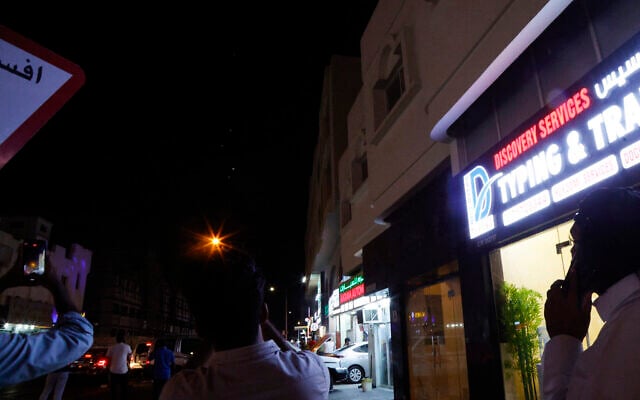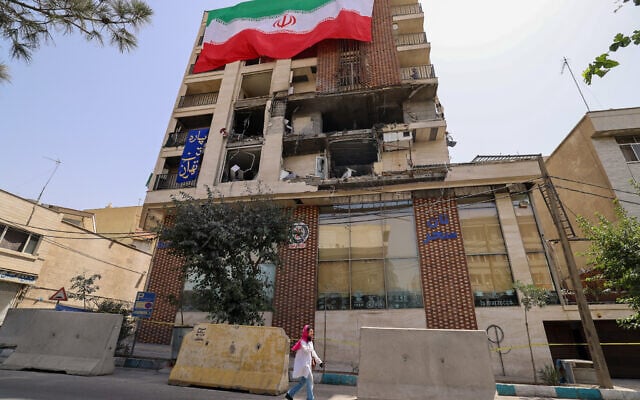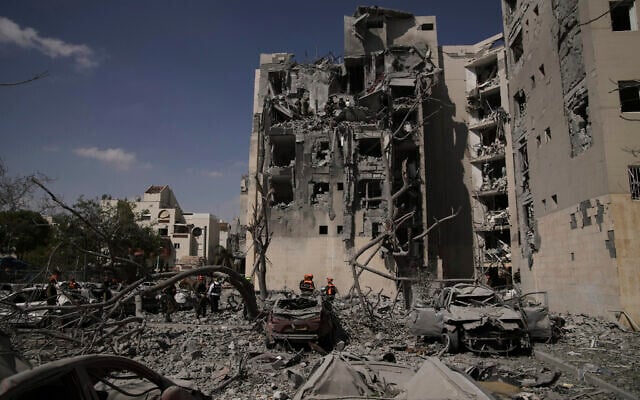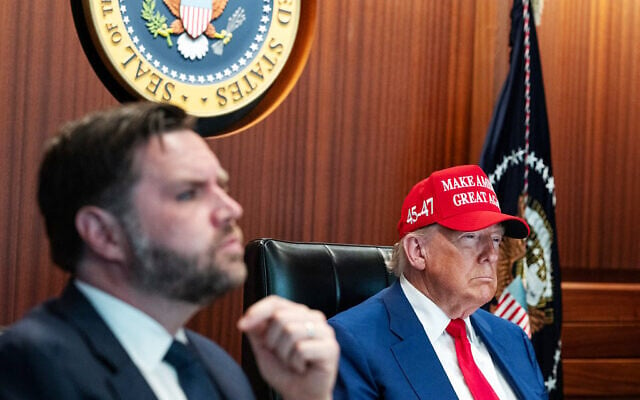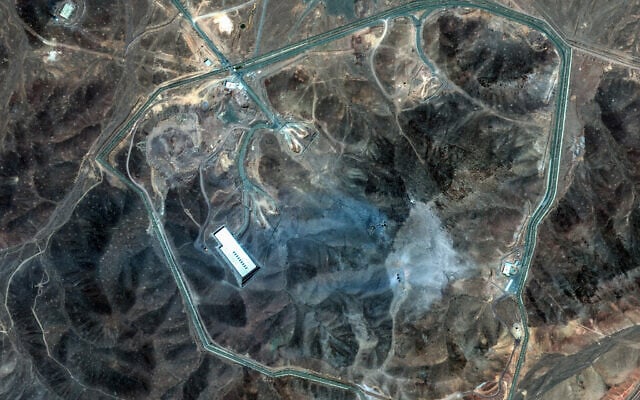


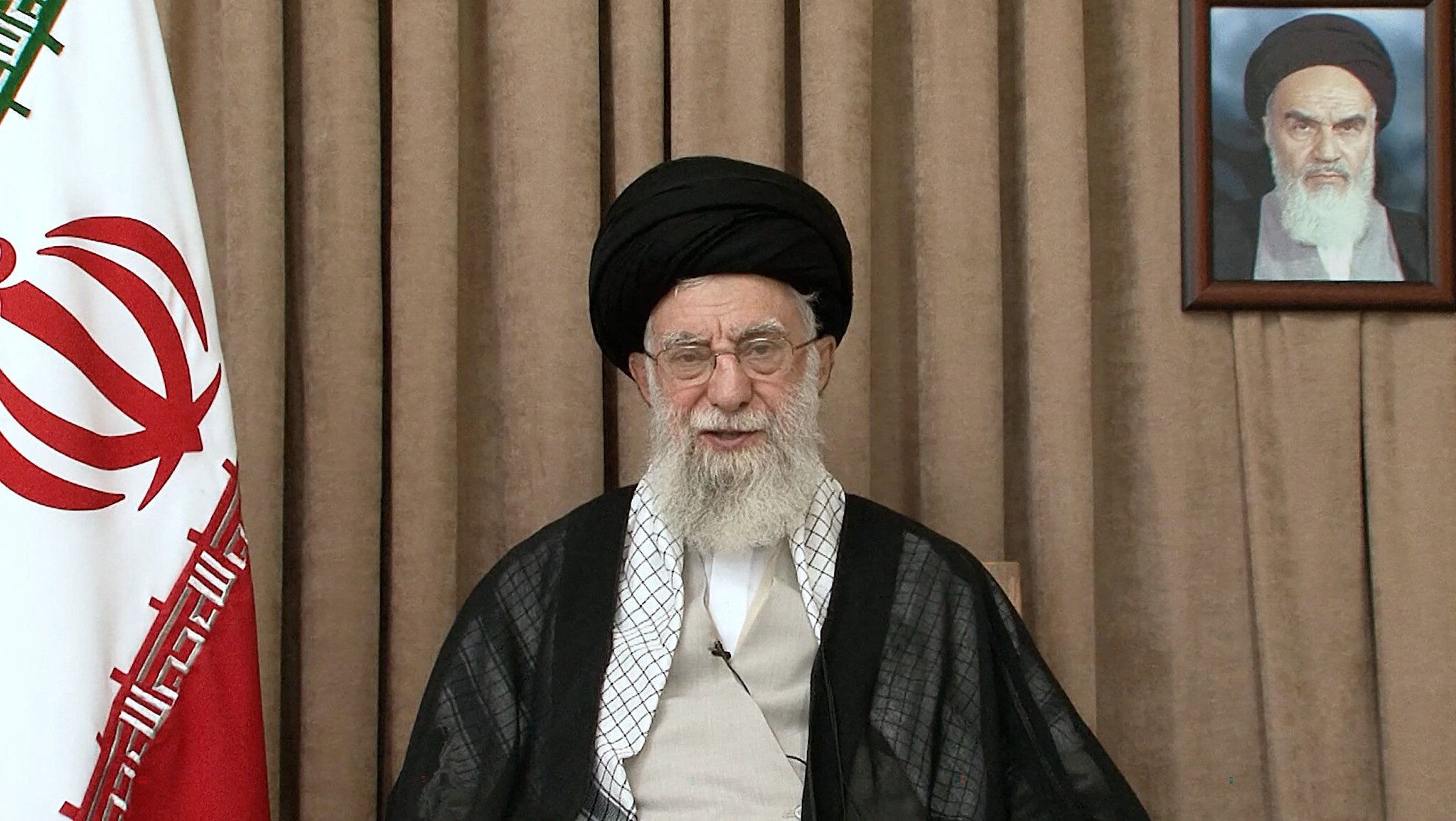
Iran’s Supreme Leader Ayatollah Ali Khamenei claimed US President Donald Trump had “exaggerated” the impact of strikes on Iranian nuclear sites, while threatening to repeat the “slap” his country had dealt American forces in the region, speaking in a televised address Thursday.
Khamenei, making his first appearance in over a week after going into hiding amid a punishing Israeli air campaign that killed many of his top generals, also hailed his country’s “victory” in the 12-day air war launched by Israel, which he claimed had “almost collapsed” because of Iran’s strikes.
The statement and a televised speech carried by state media came two days after a ceasefire ended the war between Iran and Israel, as analysts attempted to work out the extent to which Iran’s nuclear program had been set back.
“The American president exaggerated events in unusual ways, and it turned out that he needed this exaggeration,” Khamenei said, looking more tired than he did a week ago.
The United States “has gained nothing from this war,” he added, claiming that American strikes “did nothing significant” to Iran’s nuclear facilities.
“The Islamic Republic won, and in retaliation dealt a severe slap to the face of America,” he said, referring to Iran’s missile launch targeting a military base in Qatar housing US troops.
According to Washington and Doha, that attack was telegraphed in advance in what was widely seen as an Iranian attempt to avoid escalating the conflict. All but one missile fired at the al-Udeid air base was intercepted, and there were no casualties.
“Such an action can be repeated in the future, too,” he threatened, saying that Iran has “access to key US centers in the region and can take action whenever it deems necessary.”
“Should any aggression occur, the enemy will definitely pay a heavy price,” he said. “Surrender will never happen. Our nation is powerful.”
Khamenei told viewers that the US had only intervened in the war because “it felt that if it did not intervene, the Zionist regime would be utterly destroyed.”
“I want to congratulate the great Iranian nation… for its victory over the fallacious Zionist regime,” he said. He sat in front of plain brown curtains, similar to those seen behind him in his previous message on June 19, indicating he may still be in hiding.
The 86-year-old Khamenei hasn’t been seen in public since taking shelter in a secret location after the outbreak of the war on June 13, when Israel staged a surprise attack on Iranian nuclear facilities and targeted top military commanders and scientists. A state funeral will be held on Saturday in Tehran for top commanders and nuclear scientists killed in the war.
The comments were his first since June 19. Reports had indicated that he was prevented from communicating with the outside world due to fears of giving away his location. During the war, Israel purported to have penetrated deeply into Tehran’s inner sanctums, targeting supposedly secret meetings of top military commanders.
Israel said its sweeping assault on Iran’s top military leaders, nuclear scientists, uranium enrichment sites, and ballistic missile program was necessary to prevent the Islamic Republic from realizing its avowed plan to destroy the Jewish state.
Iran has consistently denied seeking to acquire nuclear weapons. However, it has enriched uranium to levels that have no peaceful application, has obstructed international inspectors from checking its nuclear facilities, and expanded its ballistic missile capabilities. Israel said it had recently taken steps toward weaponization.
Iran retaliated by launching some 550 ballistic missiles and 1,000 drones at Israel, most of which were intercepted.
Around 30 missiles and a single drone impacted inside Israel, according to the military. Some hit apartment buildings, universities and a hospital, killing 28 people, wounding thousands and causing heavy damage, Israeli authorities said.
Both Iran and Israel had already claimed they won, with Prime Minister Benjamin Netanyahu on Tuesday hailing a “historic victory” for Israel.
After waves of Israeli attacks on Iranian nuclear and military sites as well as Iranian missile and drone fire, mainly on Israeli population centers, since June 13, the United States bombed three key Iranian atomic facilities early Sunday, including dropping massive bunker-buster munitions on the underground Fordo site and a subterranean portion of the Natanz complex. It also used submarine-fired Tomahawk missiles against Natanz as well as the Isfahan facility.
Khamenei spoke before US Defense Secretary Pete Hegseth offered a fresh assessment of the attacks, aimed at countering an initial classified assessment, which CNN reported had concluded that the strikes did not destroy key components and that Iran’s nuclear program was set back only months at most.
In the United States, leaked intelligence this week opened up a Pandora’s box of accusations and counter-claims over the extent of the damage caused by the strikes.
The US administration has hit back furiously, with Trump saying the attack “obliterated” Iran’s nuclear facilities.
CIA chief John Ratcliffe said in a statement on Wednesday that “several key Iranian nuclear facilities were destroyed and would have to be rebuilt over the course of years.”
The Israeli military said it had delivered a “significant” blow to Iran’s nuclear sites but that it was too early to fully assess the damage.
Netanyahu announced Tuesday that “we have thwarted Iran’s nuclear project.”
“And if anyone in Iran tries to rebuild it, we will act with the same determination, with the same intensity, to foil any attempt,” he said.

